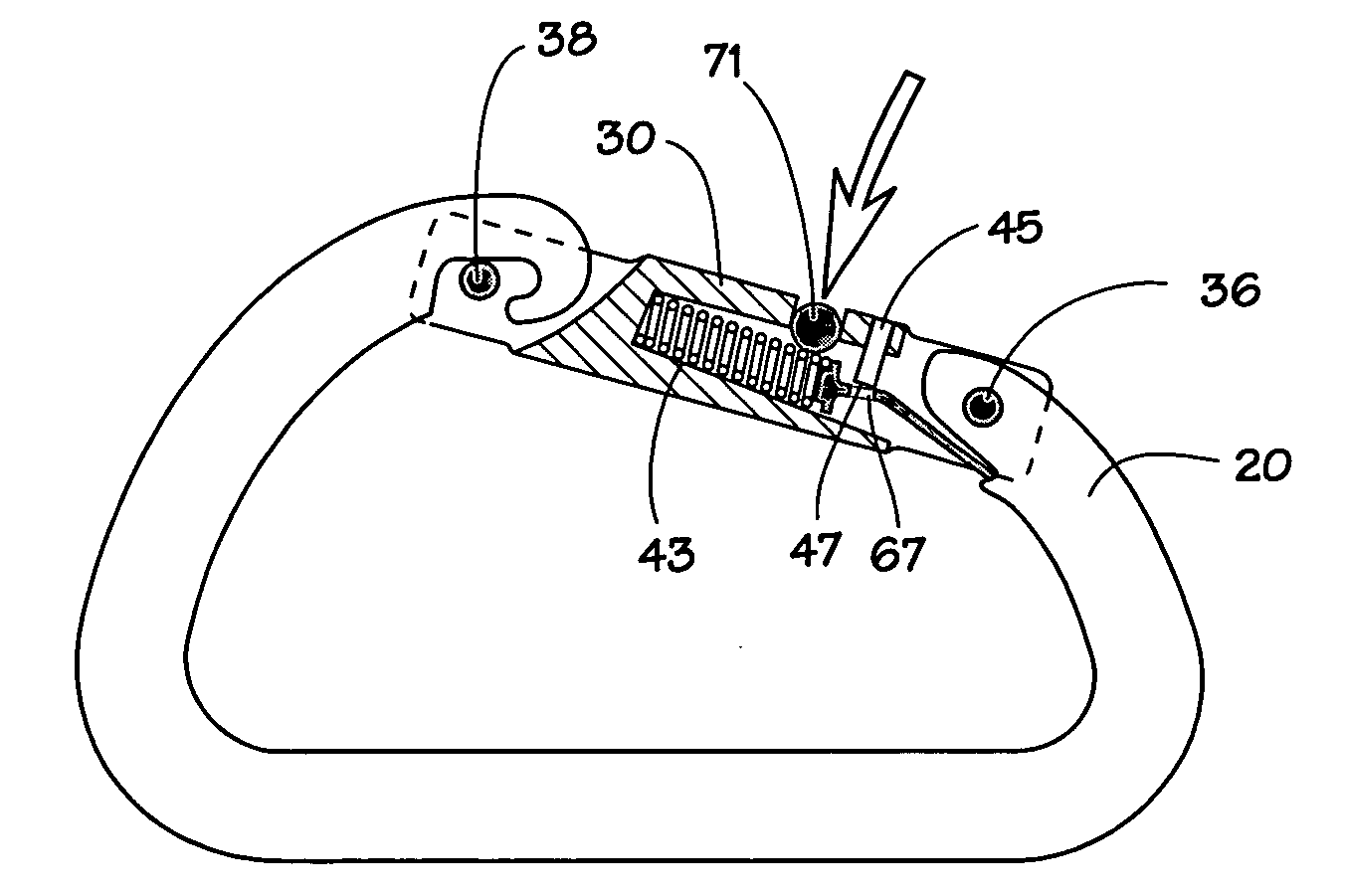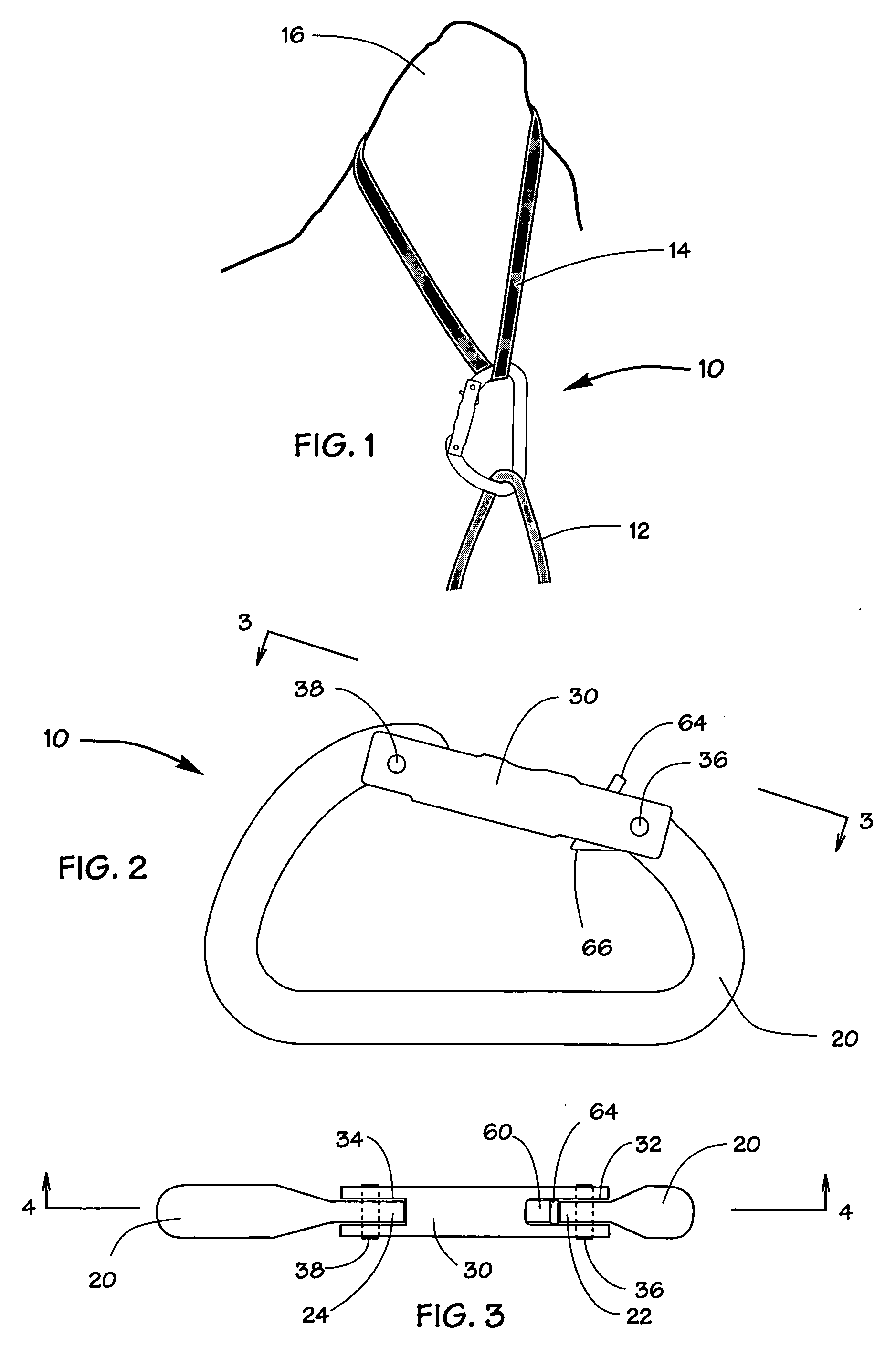Hinge locking carabiner
a carabiner and locking technology, applied in the field of climbing aids, can solve the problems of inability to remove in time, inability to adjust, and significant risk of inadvertent release of ropes or other climbing aids,
- Summary
- Abstract
- Description
- Claims
- Application Information
AI Technical Summary
Problems solved by technology
Method used
Image
Examples
Embodiment Construction
is made with reference to the accompanying drawings wherein like numerals designate corresponding parts in the several FIGS.
[0023] FIG. 1 is a pictorial view of the inventive carabiner linking rope and webbing.
[0024] FIG. 2 is a side elevation view of a carabiner incorporating the preferred configuration of the inventive locking mechanism.
[0025] FIG. 5 is a top view of the carabiner as seen in the direction 3-3 of FIG. 2.
[0026] FIG. 4 is a partial sectional view of the inventive carabiner, taken along a cut corresponding to line 4-4 of FIG. 3, showing the locking mechanism locked.
[0027] FIG. 5 is a partial close-up sectional view of the carabiner of FIG. 4.
[0028] FIG. 6 is a sectional view of the carabiner, taken alone a cut corresponding to line 6-6 of FIG. 5.
[0029] FIG. 7 is a partial sectional view of the carabiner of FIG. 4, showing the locking mechanism unlocked and the gate open.
[0030] FIG. 8 is a partial sectional view showing an alternate configuration of the locking mechani...
PUM
 Login to View More
Login to View More Abstract
Description
Claims
Application Information
 Login to View More
Login to View More - R&D
- Intellectual Property
- Life Sciences
- Materials
- Tech Scout
- Unparalleled Data Quality
- Higher Quality Content
- 60% Fewer Hallucinations
Browse by: Latest US Patents, China's latest patents, Technical Efficacy Thesaurus, Application Domain, Technology Topic, Popular Technical Reports.
© 2025 PatSnap. All rights reserved.Legal|Privacy policy|Modern Slavery Act Transparency Statement|Sitemap|About US| Contact US: help@patsnap.com



